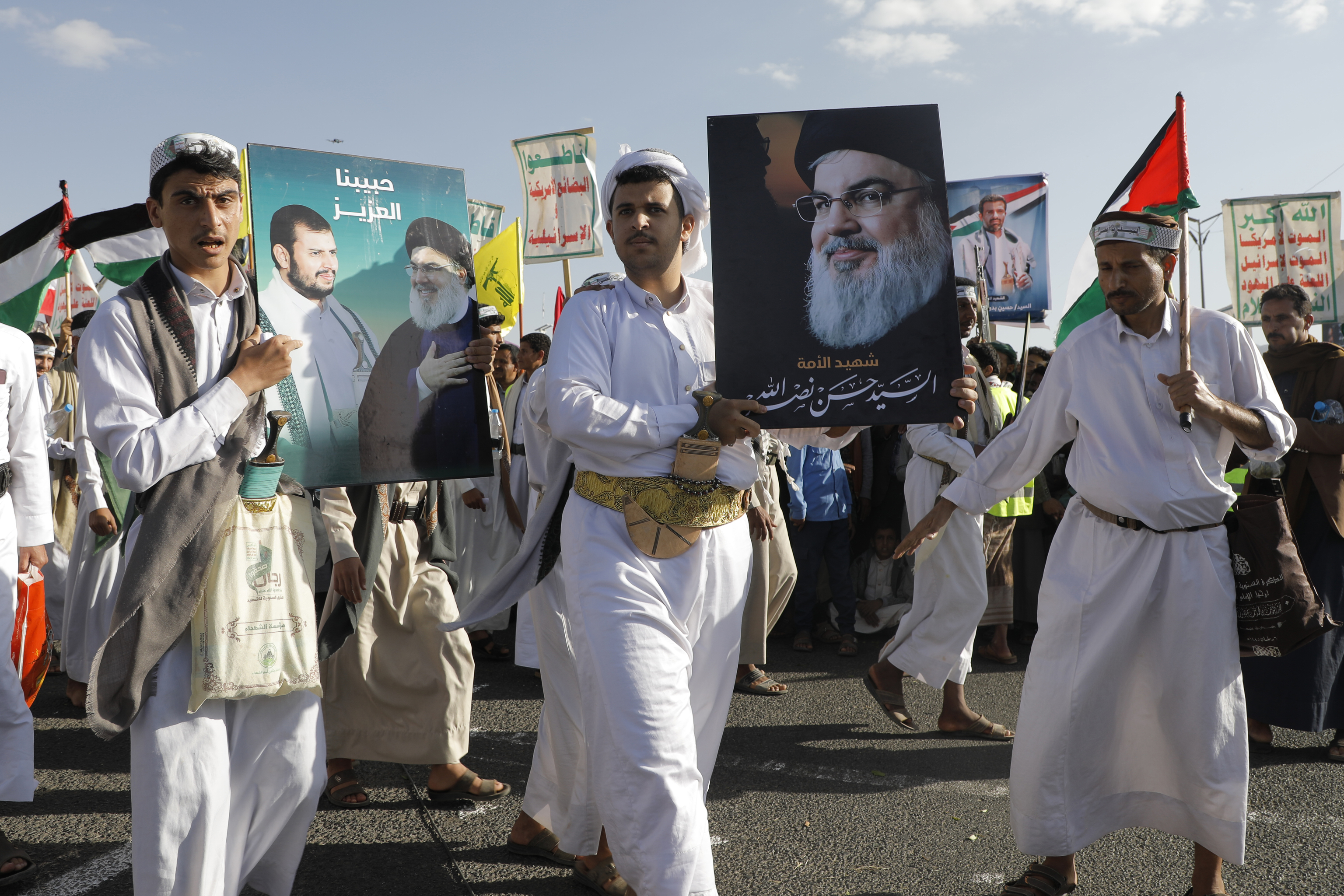Hezbollah's acting leader said Tuesday that even more Israelis will be displaced as the militant group extends its rocket fire deeper into Israel, in a defiant televised statement marking the anniversary of fighting that escalated into war last month.
Sheikh Naim Kassem, the acting leader of Hezbollah, said its military capabilities are still intact and that it has replaced all of its senior commanders after weeks of heavy Israeli airstrikes across large parts of Lebanon, including targeted strikes that killed much of its top command in a matter of days.
He also said Israeli forces have not been able to advance after launching a ground incursion into Lebanon last week. The Israeli military said a fourth division is now taking part in the incursion, which has expanded to the west, but operations still appear to be confined to a narrow strip along the border.
The Israeli military says it has dismantled militant infrastructure along the border and killed hundreds of Hezbollah fighters. On Tuesday, it said a strike in Beirut had killed Suhail Husseini, who it described as a senior commander responsible overseeing logistics, budget and management of the militant group.
There was no immediate comment from Hezbollah, and no way to confirm battlefield claims made by either side.
"We are firing hundreds of rockets and dozens of drones. A large number of settlements and cities are under the fire of the resistance," Kassem said in a video address, speaking from an undisclosed location. "Our capabilities are fine and our fighters are deployed along the frontlines."
He said Hezbollah's top leadership was directing the war and that the commanders killed by Israel have been replaced. "We have no vacant posts," he added.
He said that Hezbollah will name a new leader to succeed Hassan Nasrallah, who was killed in an Israeli airstrike in a bunker in Beirut last month, "but the circumstances are difficult because of the war."
The Israeli military said that 85 projectiles were launched from Lebanon toward northern Israel in a significant burst of fire on Tuesday.
Israel's aerial defense intercepted most of the rockets, the military said. A 70-year-old woman was moderately wounded by shrapnel and Israeli media aired footage of what appeared to be minor damage to buildings near the coastal city of Haifa.
The military also said that it struck Hezbollah targets in the southern Beirut suburbs, known as the Dahiyeh, where the militant group is headquartered.
Hezbollah began firing rockets into northern Israel on Oct. 8, 2023, the day after Hamas' surprise attack into Israel ignited the war in Gaza. Hezbollah and Hamas are both allied with Iran, and Hezbollah says its attacks are aimed at aiding the Palestinians. Israel began carrying out airstrikes in response and the conflict steadily escalated, erupting into a full-fledged war last month.
The Lebanese militant group has said it will stop the attacks if there is a cease-fire in Gaza, but months of diplomatic efforts on that front have repeatedly stalled.
Israel has inflicted a punishing wave of blows against Hezbollah in recent weeks and says it will keep fighting until tens of thousands of displaced Israeli citizens can return to their homes in the north.
More than 1,300 people have been killed in Lebanon and over a million displaced since the fighting escalated in mid-September.
Since then, Hezbollah has extended its rocket fire into central Israel, setting off air raid sirens in the country's commercial hub of Tel Aviv. Iran-backed Houthi rebels in Yemen have also launched missiles that reached central Israel. Most of the projectiles have been intercepted or fallen in open areas, disrupting life in Israel but causing few casualties and little property damage.
Last, week Iran launched its own barrage of some 180 ballistic missiles at Israel, in what it said was a response to the killing of Nasrallah, an Iranian general who was with him at the time and Ismail Haniyeh, the top leader of Hamas, who was killed in an explosion in Iran's capital in July.
Israel has vowed to respond to the missile attack, without saying when or how.
Israeli Defense Minister Yoav Gallant is in Washington this week to meet with his American counterpart, Lloyd Austin. The Biden administration says it is opposed to an Israeli attack on Iran's nuclear facilities, which could escalate regional tensions even further.
